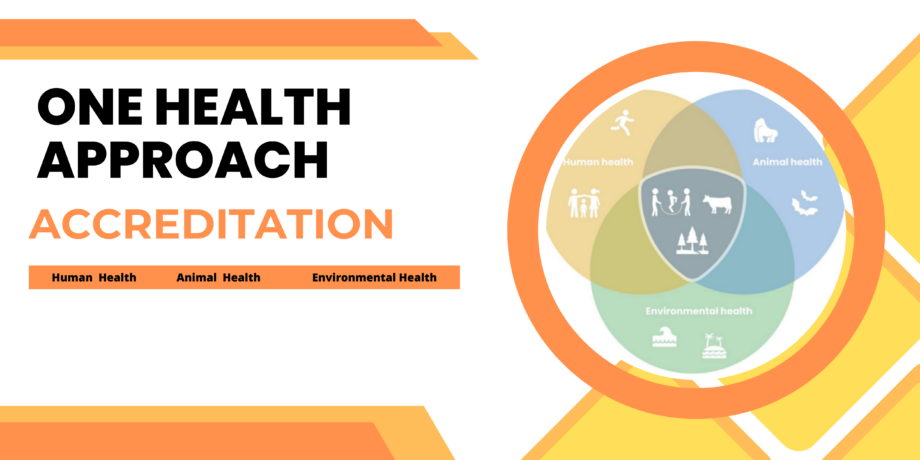The Covid-19 pandemic was an eye-opener for the Public/Environmental Health sector especially when it comes to the areas of policymaking and communicating adequate policies to the public, based on true and correct data. Public Health challenges are truly complex. The One-health approach took a centre-front with all areas of health-related communicating information amongst each other to better tackle and manage outbreaks and diseases. But how can accreditation supplement and help this process?
“One Health is an approach to designing and implementing programmes, policies, legislation, and research in which multiple sectors communicate and work together to achieve better public health outcomes” (WHO Regional Office for Europe, 2021a).
The One Health approach is critical to addressing health threats in the animal-human-environment .
The areas of work in which a One Health approach is particularly relevant include:
The accreditation process checks that all types of inspections (ISO/IEC 17020), testing (ISO/IEC 17025), calibration (ISO/IEC 17025) of equipment and medical laboratories (ISO/IEC 15189), are carried out in accordance with the latest international standards from a third-party independent body. This means that impartiality, biases, and conflict of interest are avoided.
Decisions including those related to the medical and diagnostics field should be based on genuine and correct results. Health professionals, and policymakers alike should always refer to tests being carried out under accreditation especially when making decisions, drafting policies and regulations, and even when issuing treatment against any infectious diseases for their patients. Assurance in the test result is critical, hence, always question the source of any test result. Accreditation is the main tool available at the moment.


The role of the environment, in the context of ONE Health, in animal-mediated diseases.(WHO European Centre for Environment and Health, 2022)
*Note: Stressors on the environment (grey arrows on the right) affect all three functions of the environment, in both its natural state (light blue) and in processes that have adverse health effects (orange).
Therefore, you are invited to refer to the list of carrying out tests under accreditation locally. When subcontracting tests overseas, one has to ask for that particular test to be carried out under accreditation. The European accreditation website lists the members which are MLA signatories. Each country is obliged to list all the laboratories and the tests which are carried out under accreditation.
Further Reading:
- European Commission, 2017. A European One Health Action Plan against Anti-Microbial Resistance (AMR)
- WHO European Centre for Environment and Health, 2022. A health perspective on the role of the environment in one health by the World Health Organisation. Documents number WHO/EURO:2022-5290-45054-64214
- WHO, 2022. One health joint plan of action (2022‒2026): working together for the health of humans, animals, plants and the environment

